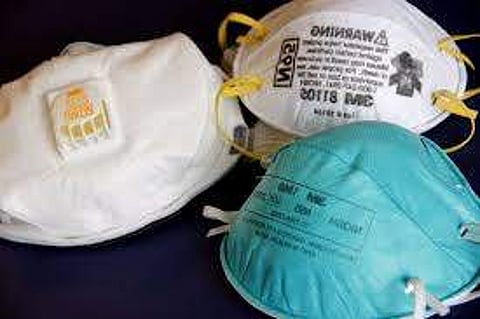

In the wake of a critical shortage of N95 face masks that block the novel coronavirus, researchers at Duke University in the US have confirmed a way to use existing vapourised hydrogen peroxide methods to clean the masks so they can be reused. The process uses specialised equipment to aerosolise hydrogen peroxide, which permeates the layers of the mask to kills germs, including viruses, without degrading the mask material, Duke University School of Medicine wrote in a blog post.
"This is a decontamination technology and method we've used for years in our biocontainment laboratory," said Scott Alderman, Associate Director of the Duke Regional Biocontainment Laboratory. "We had never considered needing it for something like face masks. But we've now proven that it works and will begin using the technology immediately in all three Duke Health hospitals," said Matthew Stiegel, Director of the Occupational and Environmental safety Office.
The decontamination process is expected to ease some of the shortage and curbing the need for other alternatives using unproven decontamination techniques. The use of hydrogen peroxide to decontaminate N95 masks was tested and published by others in 2016, but did not result in widespread adaptation. The earlier studies did not include fit testing after cleaning basically sizing the masks for individual wearers - to prove efficacy in the real world, which Duke has now done.
In addition to specialised equipment that aerosolises the hydrogen peroxide, the decontamination process requires a closed facility where the masks can be exposed to the vapour. No toxic byproducts result, because hydrogen peroxide breaks down to water.
